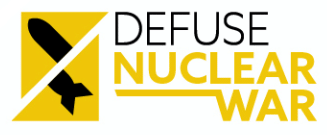The war between Israel and Hamas has caused an eruption of anger and grief in many corners of the world.
It has also launched governments into action with the U.S. and the Biden White House among them. Josh Paul resigned from the State Department this week after disagreeing with the administration's approach. He joined Nick Schifrin to discuss his decision to step down.
Read the Full Transcript
- Geoff Bennett:
The war between Israel and Hamas has caused an eruption of anger and grief in many corners of the world. It has also launched governments into action, and, first among them, the U.S. and the Biden White House.
But even inside government, there is some disagreement about the approach.
Here's Nick Schifrin. - Nick Schifrin:
The State Department's Bureau of Political-Military Affairs is responsible for most arms transfers to American allies and partners.
And for more than 11 years, Josh Paul ran its congressional and public affairs office. He wrote in his public resignation letter this week he knew his job was not — quote — "without moral compromise," but calls the transfer of weapons to Israel — quote — "shortsighted, destructive, and unjust."
And Josh Paul joins me now.
Thank you very much. Welcome to the "NewsHour." - Josh Paul, Former State Department Official:
Thank you. Good to be here. - Nick Schifrin:
So, why are weapons transfers to Israel in this moment unjust? - Josh Paul:
So, let's back up and recognize what we're talking about.
We're talking about the transfer of arms that can last for decades whose purpose is to kill. That's an obvious point. But it underlines the gravity of the decisions that we make every single day in the U.S. government and the State Department.
Recognizing that, the Biden administration earlier this year issued a conventional arms transfer policy which raised the standard for the transfer of weapons to what they call a more likely than not. If it is more likely than not that weapons the U.S. provides to another country will be used for violations of human rights, they will not be transferred.
What we have seen with Israel repeatedly in operations in government is that the U.S. Gaza in 2009, in 2014, in 2021 is massive civilian casualties, thousands of Palestinians killed through a relatively indiscriminate use of bombs to destroy buildings.
And yet, in this context of this conflict today, where we have already seen, again, thousands of Palestinian casualties, there has been no policy debate. Indeed, there's been a rush to provide arms, where, normally, there is discussion, consideration and thought. - Nick Schifrin:
So, the Israeli Defense Forces, I should say, say that they only target Hamas officials, Hamas weapons and rocket launch sites.
It sounds like what you said at the end there is one of your key criticisms. Did you raise your concerns within State, and what was the response? - Josh Paul:
I raised them, in fact, as soon as two days after the Hamas atrocity.
And let me just be clear, that was an atrocity and an outrage, full stop, period, no further caveats. Shortly after that, I raised concerns that, look, we have seen that, for 20 years, the provision of security assistance to Israel, and for longer than that, has not led to peace.
And, instead, it has used — the way it has employed that security has actually led us further from peace. And so I wrote to a number of leaders within the department two days after Hamas' attack and said, I recognize that there's going to be a demand signal for arms to Israel. Can't we for once stop and think about if this is actually getting us to where we need to be before we move forward? - Nick Schifrin:
And what was the response? - Josh Paul:
No response. - Nick Schifrin:
And how unusual is that? - Josh Paul:
It's extremely unusual.
If you think about other countries in the region, I won't name names, but there are obviously a number where there are troubling human rights records. And the debate over arms sales requests that come from those countries can last within the administration itself for months, sometimes even years. - Nick Schifrin:
During your time, though, the United States, for example — I will name names — provided arms to Egypt, widely criticized for its human rights abuses… - Josh Paul:
Yes. - Nick Schifrin:
… and to the Saudi coalition… - Josh Paul:
Yes. - Nick Schifrin:
… that has killed many, many civilians in Yemen and accused of violating the laws of war by Human Rights Watch. - Josh Paul:
Yes. - Nick Schifrin:
Why did you not resign after those arms transfers? - Josh Paul:
Because those were cases where I could make a difference and manage through my work and the work of many others in the department to add some elements to it.
So, for example, there is a training program that has been going on now with Saudi pilots to improve their targeting. And, in the case of Egypt, of course, we have Leahy vetting, where units that are identified to be involved in gross violation of human rights are not eligible to receive U.S. weapons.
There is a Leahy vetting process for Israel. It has never found an Israeli unit to be guilty of a gross violation of human rights. It's a broken system. - Nick Schifrin:
OK. Well, you could argue that isn't that proof that the vetting that State Department does do, you say, of the Israel's Defense Forces have not found a violation of Leahy? Does that mean that they don't violate the Leahy? - Josh Paul:
Well, they have identified many, but they have not been able to come to a conclusion, which requires senior level sign-off within the department. - Nick Schifrin:
Just to be clear, are you saying that there have been units inside Israel's Defense Force that the State Department has been concerned about… - Josh Paul:
Yes. - Nick Schifrin:
… their violations or their actions, you have brought that to senior officials and over the years consistently they have not acted on them? - Josh Paul:
That is correct. - Nick Schifrin:
These questions, of course, were put to Matt Miller, the State Department spokesman, earlier today.
Let's take a listen to what he said. - Matthew Miller, State Department Spokesman:
We comply with all applicable congressional statutory requirements and regulatory requirements in our provision of military assistance to Israel, as we do to every other country in the world. - Nick Schifrin:
Isn't that what the U.S. pushes, and isn't that the policy? - Josh Paul:
I think Matt is right. We have complied with the laws.
The problem is that the laws are intentionally vague in some cases. So for example, they require a determination that something has happened in terms of gross violation of human rights before sanctions, as they were, could be applied.
So, yes, absolutely, we are acting within the law. The question is, is that good enough? And we are certainly not acting within the conventional arms transfer policy. - Nick Schifrin:
Finally, you have deep experience in the region. You have connections throughout the region.
Do those connections drive your opinion this? - Josh Paul:
They certainly drive a lot of my passion.
But I think, at the end of the day, what has driven me throughout my service in the Political-Military Affairs Bureau is a passion for human rights, something that has compelled me always to look at those issues and to carry them forward as something that we need to do better on and can do better on. - Nick Schifrin:
Josh Paul, thank you very much. - Josh Paul:
Thank you.










